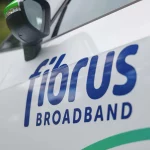Clearer Broadband Speeds in Ads? Entanet Criticises Proposed Improvements
ISP Entanet has warned that none of the recently published proposals for improving how broadband speeds are advertised in the United Kingdom are perfect. Instead they propose that it might be “better to avoid the advertising of speed completely,” although that too has drawbacks.
At present the headline speed being promoted by an ISP must be achievable by at least 10% of their customers (i.e. the fastest 10th percentile) and these figures should be preceded by an “up to” qualifier, as well as an explanation of any limitations that may hamper the connection. However this is now perceived as being too weak.
Earlier this month the Committee of Advertising Practice (CAP), which works alongside the Advertising Standards Authority (ASA) that has recently come under mounting pressure to improve how speeds are advertised (here, here and here), revealed that it had been “unable to find consensus” on an alternative approach to promoting service performance (details).
Advertisement
Instead the CAP proposed a choice of four different options to help strengthen the standards around broadband speed claims and then opened them up for public debate until 13th July 2017.
The New Options
· Peak-time median download speed;
· 24-hour national median download speed;
· Range of peak-time download speeds available to the 20th to 80th percentile of users; and
· Range of 24-hour national download speeds available to the 20th to 80th percentile of users.
Entanet has broadly welcomed the open consultation approach (ASA/CAP hasn’t historically been very good at consulting the wider telecoms industry), although they’ve also raised several “concerns” over the “practicality and potential impact” of the four options presented above.
Darren Farnden, Entanet’s Head of Marketing, said:
“Smaller resellers unfairly represented
Due to the smaller customer base that a smaller ISP would be forced to calculate their speeds on (especially if they provide to predominantly rural or lower speed areas), they could appear to be ‘slower’ than some of the larger, national providers when they are actually providing the same service and would in theory deliver very similar if not identical speeds. We believe this could negatively affect their ability to compete against the larger, national ISPs.
ISPs refusing service to ‘low speed’ customers
How far will ISPs go to protect their ‘headline speed’ stats? We could potentially see further examples of customers on lower speed connections being refused service in an attempt by the ISP to protect their ‘higher’ speed claims – It has already been reported that Sky Broadband have started to refuse to supply customers with sub 2Mbps speeds – perhaps this was a factor in that decision.
This would obviously be very bad news for customers already struggling to obtain a reasonable service and would inevitably affect the Government’s plans for 100% coverage and the USO. This would need to be policed to ensure customers with low speeds aren’t unfairly treated and their choice of provider doesn’t become restricted.
Uncontrollable factors
Whilst we understand the need to ensure an accurate estimated speed is provided to the customer to help them choose the best service for their needs, we also believe customers need to be educated more regarding uncontrollable factors that can affect the actual speed they will achieve such as internal wiring, WiFi quality, interference etc. Factors such as these are unforeseeable by the provider and often uncontrollable, yet a customer unfamiliar with their effect on the service could easily be left frustrated.
We also need clarity on which speed tester should be used and the information that must be provided as multiple versions are currently available.
Will it simply cause more confusion?
The reasons behind the varying speeds experienced by customers are complex and often difficult to explain to non ‘tech-savvy’ customers. Add to that the variety of connection options e.g. copper based ADSL, ADSL2+ through to FTTC and FTTP and the customer could easily be overwhelmed by the amount of options and the varying ‘speed’ information they are presented with, making it more difficult to effectively compare packages rather than simplifying the process.”
The points that Darren highlights above are all familiar and largely justified, although his closing suggestion that it “would be better to avoid the advertising of speed completely” and to instead focus on other service aspects (e.g. reliability, cost etc.) doesn’t completely resolve the problem.
In this market we’ve seen how generalisations in common broadband marketing terminology, such as words like “fast“, “superfast” and “fibre“, can mean all sorts of different things to different ISPs and people. Likewise the performance divide between packages providing up to 17Mbps and one offering up to 1000Mbps can be huge and thus showing speed remains one of the easiest ways to communicate that difference.
Advertisement
At the end of the day no solution is going to satisfy everybody and each approach has its own set of drawbacks, although perhaps the biggest drawback to the CAP/ASA proposal(s) is that they again overlook the key aspect of upload speed. Another big challenge will come from ensuring that all ISPs actually adopt the new guidelines, whatever form they end up taking (we still see a fair few ISPs that ignore today’s 10% rule and instead post theoretical maximums).
Mark is a professional technology writer, IT consultant and computer engineer from Dorset (England), he also founded ISPreview in 1999 and enjoys analysing the latest telecoms and broadband developments. Find me on X (Twitter), Mastodon, Facebook, BlueSky, Threads.net and Linkedin.
« EU Starts Hunting for the 2017 Best Broadband Connectivity Projects

















































Comments are closed